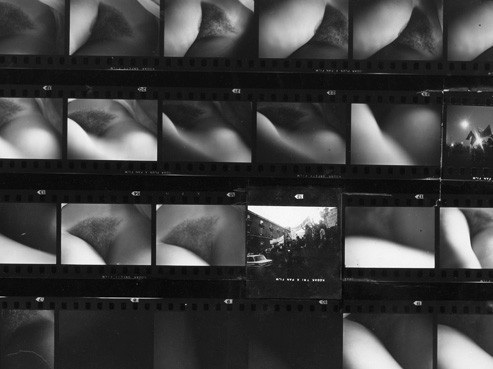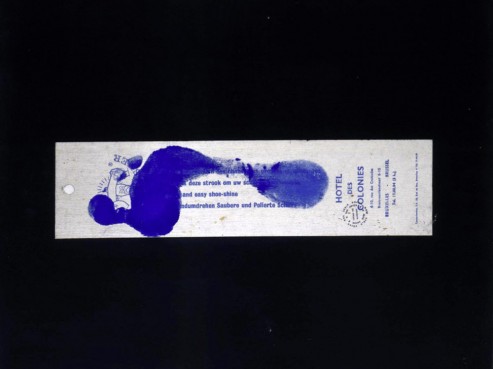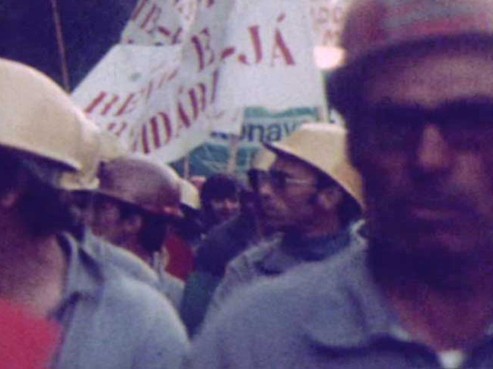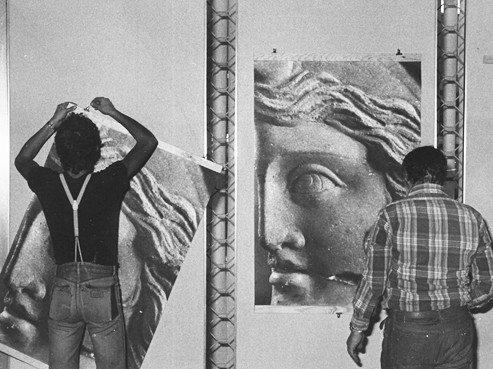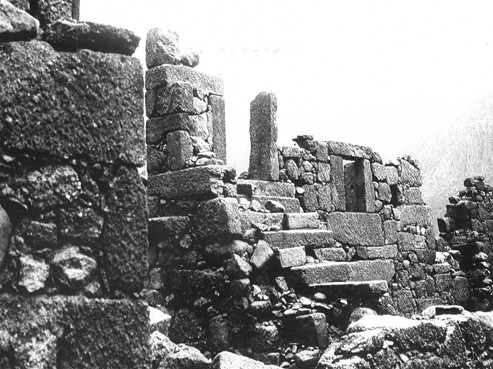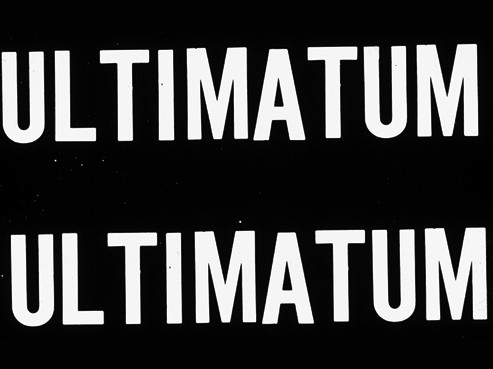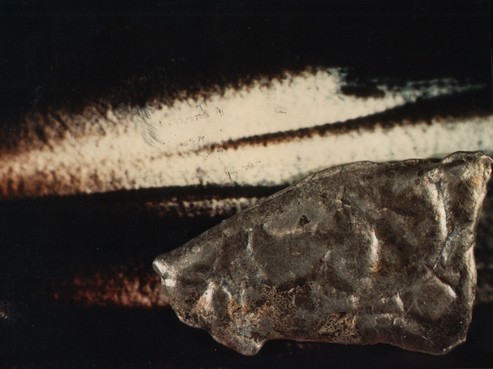



















35 mm film, black & white, sound, 102', 1958-1962.
The film made its debut on May 30th, 1962 at Cinema Império in Lisbon.
It received the Young Critics Award and the Special Award of the Youth at the International Critics' Week in 1963.
This film that Ernesto de Sousa put himself into eight years ago (since the first starting point of the story it portrays can be traced back to 1954) is a true miracle if we consider the reality of Dom Roberto's cost: around nine hundred contos, seven times less than any inexpensive film that is made in French studios!
Its financing had its "starting engine" in the so-called "Cooperativa do Espectador", that collected an amount that might seem negligible and focuses mainly on "opposing the exclusive agreements of commercial speculation, in favour of the interest of an audience familiar with quality film production", a new formula in our country. However, the film wouldn't have been viable if it hadn't been for its distributor Imperial Filmes and for Ulisseia Filmes. The producers didn't apply for the official aid (Cinema Funding), which in itself is a rare or even unique case. They also declined a proposal from today's new cinema big man, Bardem, to finance the film, which would be produced at Unicis.
Diário de Notícias, Funchal, June 2nd, 1962.
Directed by Ernesto de Sousa.
Script adapted by Ernesto de Sousa from a short story by Leão Penedo.
Music by Armando Tiago.
Cast: Raul Solnado (João Barbelas), Glicínia Quartin (Maria), Fernanda Alves, Rui Mendes, Luís Cerqueira, Nicolau Breyner, Olga da Fonseca, César Augusto, Esperança Monteiro, Adelaide João, Clara Rocha, Costa Ferreira, Oliveira Fonseca, Benjamim Falcão, Carlos Fernando and Isabel do Carmo.
Direction of photography by Abel Escoto.
Sound production by Augusto Lopes and Heliodoro Pires.
Editing by Pablo del Amo.
Production Management by Rafael Pena e Costa.
Produced by Cooperativa do Espectador, the distributor Imperial Filmes and with the support of Ulisseia Filmes.
Credits by Victor Palla. Poem by Alexandre O'Neill sang by Helena Cláudio de Sousa.
Marionettes by António Dias.
Assistant directing by Edgar Gonçalves Preto, Luís Filipe Monteiro, Luís Jacobetty, António Damião and Isabel do Carmo.
Film promotion by Lília da Fonseca.
Some national screenings:
Cinema Império, Lisbon, May 1962.
Cine-Teatro Capitólio, Lisbon, May 1962.
Cine-Teatro Avenida, Coimbra, April 1963.
Cineclube do Porto, Oporto, December 1963.
Cineclube Imagem, Lisbon, November 1966.
New Portuguese Cinema Week, Cineclube do Porto, Oporto, December 1967.
First Portuguese Cinema Week, Sociedade Filarmónica Gualdim Pais, Tomar, April 1973.
Radio and Television of Portugal, June 1974.
"Portuguese Cinema Panorama" film program, Cinemateca Portuguesa, Lisbon, August 1980.
10th International Cinema Week, Figueira da Foz, August 1981.
20th Portuguese Cinema Meeting, Cinemateca Portuguesa, Lisbon, March 1983.
"New Portuguese Cinema" film program, Cinemateca Portuguesa, Lisbon, April 1985.
Some international screenings:
Mannheim Festival, October 1962.
La Pagode film theater, Paris, October 1962.
Fédération Française des Ciné-Clubs Juvénils, Paris, November 1962.
Ciné-Club Action, Paris, December 1962.
Musée du Cinema, Paris, June 1963.
International Critics' Week, Cannes Film Festival, May 1963.
Congress of the Fédération Internationale des Ciné-Clubs, Paris, June 1963.
Excelsior film theater, Venice, September 1963.
Istituto Luce, Rome, September 1963.
"Le Cinéma Portugais des Origines à Nos Jours" film program, Pompidou Center, Paris, May 1982.







